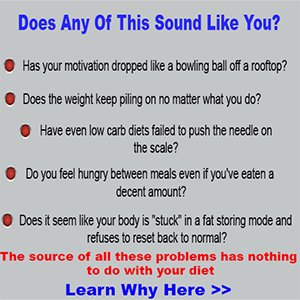Predicting Your Own Death?
BMI – otherwise known as body mass index – is a simple measurement where you divide your weight in kilograms by your height in meters squared.
It has been used for many years as a way to assess your overall health and risk factors for chronic diseases.
However, a new study may show that BMI – alone – may be a better indicator of your risk for developing heart disease or cardiovascular disease.
Now, most tests or evaluations to determine your risk for heart disease require a blood sampling to determine what your cholesterol levels are.
However, researchers who followed over 17,000 people over 30 years, feel differently about those test.
Not that cholesterol is unimportant – which they mention should be part of all health tests to determine risk factors for heart disease – but
it may not be the only valuable factor when assessing your risk.
Over the course of their study, they found that using BMI INSTEAD of cholesterol, may provide a better estimate of people who are at a lower or a higher risk for developing heart disease.
Plus, they found combining smoking – and in particular – high blood pressure and BMI showed a stronger assessment of risk as opposed to cholesterol profiles.
And, BMI was associated to a greater extent to total mortality as opposed to cholesterol levels ALONE.
The researchers suggest that by using BMI – as opposed to cholesterol measurements – could not only reduce unnecessary blood testing, but could also lead to an increase in population based samples for evaluating heart disease risk estimates.
They concluded:
“Our results suggest that BMI may be a valuable alternative to cholesterol in CVD risk predictions.”
Why BMI is Important to Your Health
BMI – which is a diagnostic test performed by doctors – may give them reliable information on your current state of health.
And according to this study, using BMI to assess cardiovascular risk factors may be more accurate than your cholesterol levels alone.
So what can you do if your BMI is high?
1. You should focus on losing weight (and of course if your bodyfat is low, then this step may be skipped).
Losing weight will bring down your BMI and could also reduce your overall health risk for many different diseases.
2. Eat Healthy
Eating healthy not only improves your weight loss, but could even reduce your risk factors by altering what’s going on inside your body.
Eating whole food sources, such as fruits, vegetables, sprouted grain breads, grass-fed lean meat, and wild caught fish – as opposed to processed junk - may end up altering the health of the cells in your body.
3. Exercise
Exercise may be able to reduce your BMI and alter your fat-to-muscle ratio.
The higher your body fat levels are, may significantly increase your risk factors for chronic diseases.
By increasing your lean muscle mass – and decreasing your overall fat mass – you may reduce your chronic disease risk, and look good in the process.
Include these three tips in order to improve your fat loss, improve your BMI numbers, and possible reduce your risk for developing heart disease or other chronic diseases.
References:
Faeh D, Braun J, Bopp M. Body Mass Index vs Cholesterol in Cardiovascular Disease Risk Prediction Models. Arch Intern Med. 2012;172(22):1766-1768. doi: 10.1001/2013.jamaintermed.327.
About Jayson Hunter & Jaylab Pro

Jaylab Pro was founded by Registered Dietitian Jayson Hunter. Jayson has been recognized as one of America's foremost weight loss experts by America's Premier Experts™. He has also been featured in USA Today for this accomplishment. Jayson is also a best-selling author having co-authored multiple books in health & fitness and business growth. Jayson and the Jaylab Pro team are proud to create content that helps improve the lives of millions of people around the world. We hope you enjoy it just as much as others have.
 If you order a JayLabPro SmartShip product or any Combo Package, we will automatically ship you a new supply of the product or products you have ordered every month, starting 30 days after your initial order is shipped, and continuing until you cancel. The credit card you are using today will be billed the lowest available price for those product or products when your order is shipped, but shipping will be FREE. You may log into your customer account or call our customer service department toll-free at 1-888-9GETPRO (1-888-943-8776) between the hours of 8am – 9pm EST Mon-Fri to cancel future shipments, customize the timing of your shipments, or change the credit card used for billing.
If you order a JayLabPro SmartShip product or any Combo Package, we will automatically ship you a new supply of the product or products you have ordered every month, starting 30 days after your initial order is shipped, and continuing until you cancel. The credit card you are using today will be billed the lowest available price for those product or products when your order is shipped, but shipping will be FREE. You may log into your customer account or call our customer service department toll-free at 1-888-9GETPRO (1-888-943-8776) between the hours of 8am – 9pm EST Mon-Fri to cancel future shipments, customize the timing of your shipments, or change the credit card used for billing.










